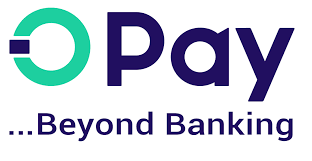The Fintech Disruptor Reshaping Emerging Economies
Picture this: A market trader in Lagos pays suppliers, saves for her children’s education, and secures a business loan—all before sunrise, using just her smartphone. This isn’t futuristic fantasy; it’s daily reality for 50 million users across Africa and Asia powered by OPay. Born in 2018 as Opera’s brainchild, this Lagos-based fintech titan has exploded into a 2.7 billion valuation juggernaut, processing a staggering 12 billion monthly in transactions.
Why does this matter? Africa’s 350 million unbanked adults aren’t just statistics—they’re small business owners, students, and farmers locked out of traditional finance. OPay’s mission slices through this exclusion with surgical precision: “Make financial services inclusive through technology”. Forget marble-floored bank branches; OPay lives in your pocket, offering bank-grade security with the simplicity of a chat app. From Nigeria’s bustling cities to Egypt’s Nile Delta villages and Pakistan’s high-altitude towns, OPay isn’t just a payment app—it’s an economic revolution disguised as code.
OPay’s Service Ecosystem: Your All-in-One Financial Command Center
OPay’s genius lies in bundling life’s financial needs into one sleek super-app. Think Switzerland’s army knife—if it also printed money. Dive under the hood:
Payments Hub
Send money instantly, settle bills, or grab 6% cashback on airtime. Need to pay a rural vendor without internet? QR codes and NFC work offline.
Digital Banking
Meet OWealth—savings with daily compounded interest and free debit cards granting 10 monthly ATM withdrawals. No minimum balances. No hidden fees.
Credit Lifelines
Through Okash, collateral-free loans hit your wallet in minutes: Personal loans for medical emergencies, business loans for inventory spikes, microloans as small as 10. Repayment flex? Choose weekly or monthly cycles.
Merchant Arsenal
500,000+ POS terminals with inventory tracking, e-commerce gateways accepting cards and crypto, and real-time sales analytics. In Pakistan, OPay’s injecting 100 million into POS infrastructure—transforming street vendors into digital merchants.
Technological Engine: The Invisible Architecture of Inclusion
How does OPay handle 100M+ daily transactions without breaking a sweat? Behind that candy-colored app lies industrial-grade tech:
AI Sentinel
Your digital bodyguard. eKYC verification combats identity fraud, while algorithms sniff out suspicious patterns mid-transaction. Triggered a 500 transfer? Large Transaction Shield demands facial biometrics. Night owl? NightGuard freezes “risky” actions between 1-5 AM.
Cloud Rocketship
A Huawei Cloud partnership slashed latency from 130ms to 15ms—faster than a hummingbird’s wingbeat.
Human Touchpoints
500,000+ agents form a hybrid network. They’re not just cash-in/cash-out points; they troubleshoot phones, teach digital literacy, and become community finance gurus.
API Ecosystem
OPay’s secret sauce. Ride-hailing, food delivery, even “buy now, pay later” schemes plug into its payment rails. This isn’t an app—it’s a financial operating system.
Revenue Model: Profits Fueling Purpose
“How does free banking make money?” You wonder. OPay’s monetization dances on multiple fronts:
Transaction Fees
70% of revenue, via 0.5%-3% merchant cuts on payments.
Financial Products
Margins on loans and OWealth’s deployment into higher-yield instruments.
Data Insights
Anonymized spending patterns help FMCG giants optimize product launches—like revealing Ramadan sales spikes in Kano.
Cross-Subsidization
Profitable urban hubs fund rural expansion where margins are thin but impact is massive. Profitability hit in 2024—proof that inclusion and profits aren’t mutually exclusive.
Regulatory Tightrope: Navigating Stormy Seas
Growth isn’t always smooth. Nigeria’s Central Bank hammered OPay with a record 1B fine in 2024 for KYC/AML gaps. Crisis? Or catalyst? OPay responded with:
BVN/NIN Integration
Tying user identities to biometric databases.
Localized Compliance
Egyptian operations adopted Central Bank of Egypt protocols; Pakistan aligned with State Bank rules.
Transparency Offensive
Real-time audit trails for regulators. The lesson? In emerging markets, fintechs must be diplomats as much as disruptors.
Social Impact: Banking the Unbanked Isn’t a Slogan—It’s a System
Beyond spreadsheets, OPay’s wiring economies for dignity:
Job Tsunami
400,000+ livelihoods created via agents, tech hires, and merchant growth.
Rural Revolution
40% of Nigerian users live outside cities—farmers receiving payments instantly, bypassing predatory middlemen.
Women’s Wealth Wave
Female agents aren’t tokens; they’re community pillars training other women. In Northern Nigeria, where cultural norms restrict mobility, OPay kiosks become safe financial havens.
Literacy via Design
Savings goal trackers nudge behavior change. Group savings features fund communal projects—like a Nollywood-inspired “clan contribution” model for school fees.
Competitive Arena: The Titans Clash
Africa’s fintech battlefield is crowded, but OPay’s bundling strategy creates distance:
Moniepoint
Processes 22B+ annually but lacks OPay’s consumer savings/loan depth.
PalmPay
35M users and CNBC Top 250 cred, yet weaker in merchant analytics.
M-Pesa
The OG mobile money, but API integration lags. OPay’s edge? Becoming the “WeChat of Africa”—where payments, commerce, and social needs converge.
The Horizon: Where Next for Africa’s Fintech Lion?
OPay’s 2031 vision reads like a sci-fi manifesto: 1 billion users, 10 million merchants, 3 million jobs. How?
Geographic Leaps
Pakistan’s 100,000 POS target is just rehearsal. North Africa and Southeast Asia are next.
Product Evolution
SME lending algorithms using transaction history as collateral. Crypto-on-ramps teased in roadmaps.
Sustainability Wiring
Partnering with solar firms to power agent networks off-grid.
The Blueprint for Humanity-Centered Finance
Let’s drop the jargon: OPay proves fintech isn’t about replacing banks—it’s about replacing exclusion with agency. That market trader in Lagos? She’s now part-owner in a textile co-op funded through Okash, her kids’ school fees auto-deducted via OWealth. As Elizabeth Wang, OPay’s CCO, declared accepting Vanguard’s Most Innovative Fintech award: “This is for every Nigerian who trusted us with their dreams”.
The future of finance isn’t hidden in Wall Street servers. It’s being written on cracked smartphone screens, one inclusive transaction at a time. OPay’s real innovation? Making money human again.


